Navigation
Install the app
How to install the app on iOS
Follow along with the video below to see how to install our site as a web app on your home screen.

Note: This feature currently requires accessing the site using the built-in Safari browser.
More options
You are using an out of date browser. It may not display this or other websites correctly.
You should upgrade or use an alternative browser.
You should upgrade or use an alternative browser.
Is cropping..... bad?
- Thread starter hammy
- Start date
LittleMan
TPF Noob!
- Joined
- Dec 14, 2004
- Messages
- 6,648
- Reaction score
- 141
- Location
- Texas
- Website
- www.sorberaguitars.com
- Can others edit my Photos
- Photos OK to edit
not at all... I think cropping is really useful to bring out certain areas of a photo you want to. 
- Joined
- Sep 2, 2003
- Messages
- 34,526
- Reaction score
- 7,557
- Location
- In the mental ward of this forum
- Can others edit my Photos
- Photos NOT OK to edit
I was taught to always try to get the composition I wanted "in camera" to eliminate the need for cropping, either in the darkroom or on the PC. I happen to love the look of a silver gelatin image printed full bleed - so I make a conscious effort to get the negative exactly the way I envision the final print.
Is it always necessary? Nope. Will it always work? Nope. Is there anything inherently wrong with cropping after the fact? Nope.
So, I don't sweat it at all. It's more personal preference, I think. The happier I am with what I get straight from the camera, the less I have to work with it later (unless I plan to use the transparency for some alternative process, but that's another story). That's just my personal comfort zone.
Is it always necessary? Nope. Will it always work? Nope. Is there anything inherently wrong with cropping after the fact? Nope.
So, I don't sweat it at all. It's more personal preference, I think. The happier I am with what I get straight from the camera, the less I have to work with it later (unless I plan to use the transparency for some alternative process, but that's another story). That's just my personal comfort zone.
Meysha
still being picky Vicky
- Joined
- Feb 21, 2005
- Messages
- 4,152
- Reaction score
- 60
- Website
- vickywall.deviantart.com
- Can others edit my Photos
- Photos NOT OK to edit
I always try and get the cropping I want in the camera when I first take the photo. But sometimes with either zoom restrictions, or the subject just being a pain in the proverbial, ya need to do cropping later on.
I don't think there's really any 'ethical' issue about it imo, well unless of course, you're cutting something out that completely changes the story/meaning of the photo.
I don't think there's really any 'ethical' issue about it imo, well unless of course, you're cutting something out that completely changes the story/meaning of the photo.
Digital Matt
alter ego: Analog Matt
- Joined
- Jan 30, 2004
- Messages
- 5,358
- Reaction score
- 73
- Location
- Santa Barbara, CA
- Website
- www.mattperko.com
- Can others edit my Photos
- Photos NOT OK to edit
Sometimes the aspect ratio of the negative doesn't lend itself to a good composition. Sometimes an 8x10 is more pleasing than an 8x12, for a particular scene. I think your goal should be presenting the best image you can.
PlasticSpanner
TPF Noob!
- Joined
- May 1, 2005
- Messages
- 4,125
- Reaction score
- 51
- Location
- Cheshire, England
- Website
- www.cheshirecatcarclub.info
- Can others edit my Photos
- Photos NOT OK to edit
If you really want to challenge yourself then try to get the crop and everything else right in the camera.
If you just want the photograph then cropping and post editing are fine.
It's really just a personal choice and when it's just a hobby you set your own standards.
If you just want the photograph then cropping and post editing are fine.
It's really just a personal choice and when it's just a hobby you set your own standards.
Well, in some photo classes, instructors tell you to crop in camera because it helps you learn composition and gives you better quality when using 35mm.
One thing to keep in mind is that you created the picture. Whether you change the story or not is up to you and you can change it or not to suit your own purpose. The photography has just started when you take the picture.Meysha said:I don't think there's really any 'ethical' issue about it imo, well unless of course, you're cutting something out that completely changes the story/meaning of the photo.
icondigital
TPF Noob!
- Joined
- Oct 29, 2005
- Messages
- 325
- Reaction score
- 14
- Location
- u s a
- Website
- icondigital.deviantart.com
you didnt specify film or digital.
using film i would place more importance on camera composition than i would using digital.
i also think cropping to good composition in processing would be just as challenging as doing it with the camera
:sun:
using film i would place more importance on camera composition than i would using digital.
i also think cropping to good composition in processing would be just as challenging as doing it with the camera
:sun:
thebeginning
TPF Noob!
- Joined
- Jan 10, 2005
- Messages
- 3,795
- Reaction score
- 30
- Location
- Texas
- Website
- www.danielcolvinphotography.com
- Can others edit my Photos
- Photos NOT OK to edit
icondigital said:you didnt specify film or digital.
using film i would place more importance on camera composition than i would using digital.
i also think cropping to good composition in processing would be just as challenging as doing it with the camera
:sun:
i agree mostly, although i think it's easier to crop and frame afterwards since you have more time to do it, and youve thought about how you want it to look. I try to never crop my images now, and so far it's going fairly well. I only crop them if i absolutely have to, or if i couldnt acheive a certain perspective or composition with the equipment or vantage point I had at the time. I dont have a problem with cropping unless it's silly cropping that doesnt help the composition and seems to be just cropped for the sake of being cropped. a full framed negative always impresses me somehow, although it's not as big a deal with digital for some reason.
When I was in art school, we had the pleasure of having Arnold Newman come and give a talk. In a way he touched on this. Near the beginning of his speech he showed a slide of his famous photograph of Pablo Picasso. I am sure you know the one, just do a google of Arnold Newman and you will know which one I mean. Near the end of his talk he showed a slide of just an eye. He asked us who is this. We all replied Pablo Picasso. He asked, "How do you know this is Picasso? it is just an eye." He went on to say something about it is our vision as photographers that we are portraying.
Your finished product is not the negative or positive that you create when you take the picture. The finished product is the image that you create from that negative, positive, digital file, combination there of.
BE THE CREATORS OF YOUR IMAGES.
Your finished product is not the negative or positive that you create when you take the picture. The finished product is the image that you create from that negative, positive, digital file, combination there of.
BE THE CREATORS OF YOUR IMAGES.
Marctwo
TPF Noob!
There are a few reasons why you may want to crop:
However, ethics can come in to it for some people when the crop significantly changes the composition:
You may compose a full body shot of someone, for example, that looks good and is what you intended at the time of shooting. But when you process the image, you may think it looks better as a half body shot. Go for it - get the best image you can. But learn from it and remember to look for this kind of option with your camera next time.
You may just point your camera and think "I know there's a shot in there somewhere but I can't be bothered to look for it so I'll just crop it later". This kind of attitude does have a time and place but you'll generally get far better results when you setup for a specific shot.
I'm for a no holds bared approach - show me the finished image and I'll tell you if I like it.
- If you're shooting film, you'll usually want to crop the edges to some degree.
- Many view finders don't show the whole frame so you may need to do some fine tuning of the frame.
- You'll need to crop for some 'standard' print sizes like 5" x 7" or 8" x 10".
- You may simply not have enough zoom power so to get the shot you had in mind, you need to crop.
However, ethics can come in to it for some people when the crop significantly changes the composition:
You may compose a full body shot of someone, for example, that looks good and is what you intended at the time of shooting. But when you process the image, you may think it looks better as a half body shot. Go for it - get the best image you can. But learn from it and remember to look for this kind of option with your camera next time.
You may just point your camera and think "I know there's a shot in there somewhere but I can't be bothered to look for it so I'll just crop it later". This kind of attitude does have a time and place but you'll generally get far better results when you setup for a specific shot.
I'm for a no holds bared approach - show me the finished image and I'll tell you if I like it.
photoboy15
TPF Noob!
- Joined
- Nov 16, 2005
- Messages
- 130
- Reaction score
- 1
I had a teacher from the "old school" that said the whole print what you shoot beacuse you dont what to change the picture and so on. Never understood why dodging and burning was ok though, and he could never anwser why it was OK to him. So my 2 cents photography is art and really only bound by physics and man, and most of use have broke some laws of man for a picture at one time or another. Unless your shooting for a client do what you want and let people have opinion. "Because opinions are like........."
Rob
TPF Noob!
My mentor taught me a way which I think is quite effective - start with fully manual camera with a 50mm f1.8 lens and produce standard 6x4 prints processed with no manipulation. When you can take a picture in most circumstances which is exposed correctly, composed correctly and is a final product..... then you may use zoom lenses and cropping as you know why you are doing it.
Quite a good logic I think as you're going to get the "best" quality image from a full frame enlargement, rather than a sub-crop enlarged by a greater magnification. Therefore it's desirable to get it perfect in-camera, but by no means unacceptable to produce a final product which has used techniques like cropping to improve it further.
Rob
Quite a good logic I think as you're going to get the "best" quality image from a full frame enlargement, rather than a sub-crop enlarged by a greater magnification. Therefore it's desirable to get it perfect in-camera, but by no means unacceptable to produce a final product which has used techniques like cropping to improve it further.
Rob
Similar threads
- Replies
- 20
- Views
- 505
- Replies
- 0
- Views
- 181


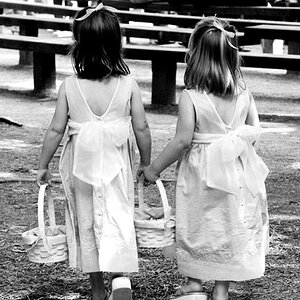
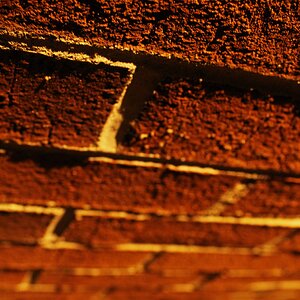
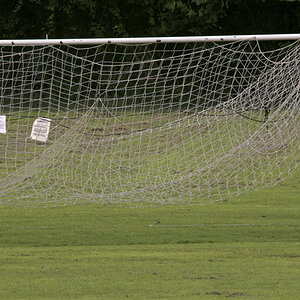
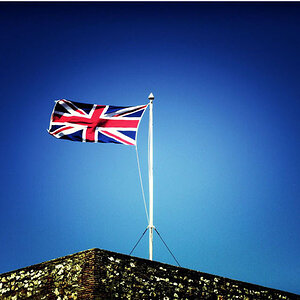

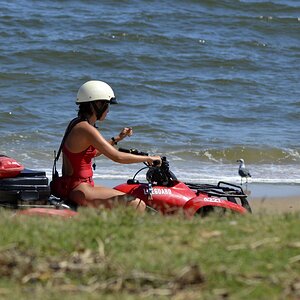
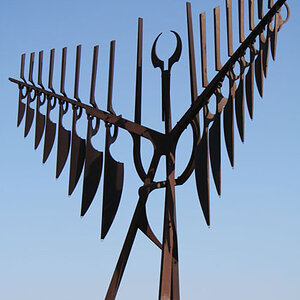
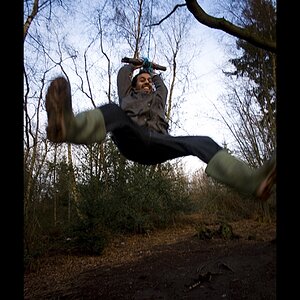


![[No title]](/data/xfmg/thumbnail/36/36133-8b29212f67c25fcf353a0c2f376b1501.jpg?1619737385)